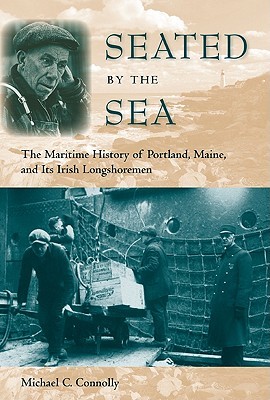
- We will send in 10–14 business days.
- Author: Michael C Connolly
- Publisher: University of Florida Press
- ISBN-10: 0813037220
- ISBN-13: 9780813037226
- Format: 15 x 22.6 x 2.3 cm, minkšti viršeliai
- Language: English
- SAVE -10% with code: EXTRA
Reviews
Description
For decades, Portland, Maine, was the closest ice-free port to Europe. As such, it was key to the transport of Canadian wheat across the Atlantic, losing its prominence only after WWII, as containerization came to dominate all shipping and Portland shifted its focus to tourism.
Michael Connolly offers an in-depth study of the on-shore labor force that made the port function from the mid-nineteenth through the mid-twentieth centuries. He shows how Irish immigrants replaced and supplanted the existing West Indian workers and established benevolent societies and unions that were closed to blacks. Using this fascinating city and these hard-working longshoremen as a case study, he sheds light on a larger tale of ethnicity, class, regionalism, and globalization.EXTRA 10 % discount with code: EXTRA
The promotion ends in 22d.02:30:44
The discount code is valid when purchasing from 10 €. Discounts do not stack.
- Author: Michael C Connolly
- Publisher: University of Florida Press
- ISBN-10: 0813037220
- ISBN-13: 9780813037226
- Format: 15 x 22.6 x 2.3 cm, minkšti viršeliai
- Language: English English
For decades, Portland, Maine, was the closest ice-free port to Europe. As such, it was key to the transport of Canadian wheat across the Atlantic, losing its prominence only after WWII, as containerization came to dominate all shipping and Portland shifted its focus to tourism.
Michael Connolly offers an in-depth study of the on-shore labor force that made the port function from the mid-nineteenth through the mid-twentieth centuries. He shows how Irish immigrants replaced and supplanted the existing West Indian workers and established benevolent societies and unions that were closed to blacks. Using this fascinating city and these hard-working longshoremen as a case study, he sheds light on a larger tale of ethnicity, class, regionalism, and globalization.

Reviews